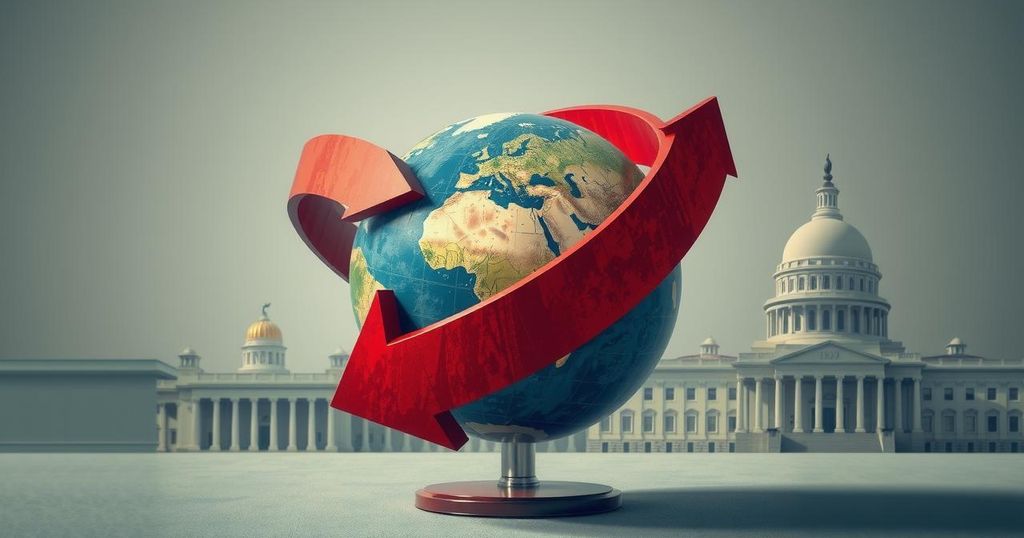President Trump’s threats to cut aid to Egypt and Jordan over refugee acceptance may lead to a significant diplomatic crisis. Both countries have historically depended on U.S. aid, making this situation precarious for their relationships with the United States. Furthermore, potential Arab financial support could alleviate some pressures as they navigate these challenges.
U.S. President Donald Trump has threatened to cut billions of dollars in aid to Egypt and Jordan if these nations do not agree to accept Palestinian refugees from the Gaza Strip. This ultimatum places both countries in a precarious position regarding their long-standing relationship with the United States, which has been historically significant since the peace treaties signed with Israel in 1979 and 1994, respectively.
Both Egypt and Jordan have relied heavily on U.S. financial support, making them vulnerable to economic pressure. These threats by the Trump administration could exacerbate diplomatic relations and challenge the stability that has been maintained since the peace agreements. Additionally, the possibility of aid reductions may prompt the Arab world to step in as a potential economic lifeline for these nations.
The political climate surrounding this issue underscores the potential risks involved in the U.S. altering its aid strategies. The failure to accommodate refugee resettlement could not only strain relationships with Washington but also ignite larger regional tensions. Therefore, the stakes are high for both nations, as they navigate their obligations towards regional humanitarian needs while managing their international alliances.
In summary, President Trump’s threats to reduce aid to Egypt and Jordan represent a significant diplomatic strain on U.S. relations with these countries. The potential economic fallout reinforces the delicate balance that both nations must maintain in response to U.S. demands, particularly regarding the acceptance of Palestinian refugees. This situation highlights the critical intersection of humanitarian obligations and international diplomacy, with potential ramifications extending beyond immediate economic concerns.
Original Source: www.haaretz.com




